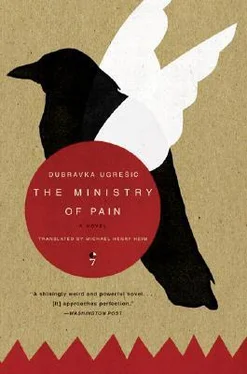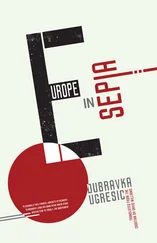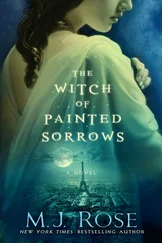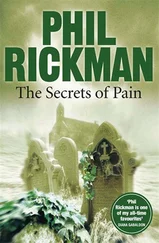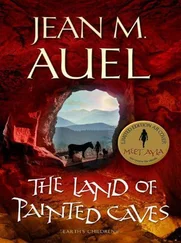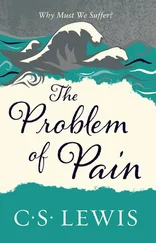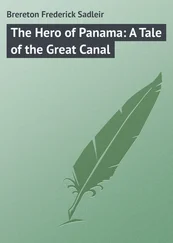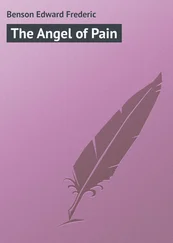In front of the small Anne Frank Museum I saw an earthworm of a line. Inside I saw myself standing in front of a monitor absorbed in its video quiz: 1. Whom did Anne first share her room with? 2. Whom did she have to share it with later on? 3. What did Anne do to liven up her room? 4. Who built the bookcase? 5. From which country did the Frank family flee? 6. Were all Anne’s girlfriends refugees?
I suddenly realized that the house at Prinsengracht 163 bore a distinct resemblance to the houses that obsessed me in my nightmares, and it was with a sense of relief that I mounted the virtual stairs, opened and closed the virtual doors, and left the house simply by pressing the Esc key. I no longer had anything to fear: escape was always an option.
I pictured a Hague Tribunal the size of a matchbox, with tiny judges in tiny gowns, tiny defendants and witnesses, tiny counsels for the defense and the prosecution, miniature surrogates simulating a life in which right and wrong exist. In actuality, there are no right people and wrong people, no good people and bad people; there is only the mechanics of it all, the operation. And the only thing that counts is action; action is all. For the windmills to turn, as small and lively as the city’s sparrows; for the bridges to go up and down, for boats to buzz along the canals like remote-controlled flies; for tiny prostitutes in the red-light district to open and close the curtains of their displays, as neat and meticulous as those old-fashioned barometers; for tiny mounted policemen to make their rounds on horses no bigger than white mice. And as long as the curtains open and close, as long as the windmills turn, as long as the bonsai grow, as long as the blood flows through our filigree veins and into our filigree hearts, everything is just fine. The language of Madurodam has no words for fatality, destiny, or God. God is the mechanics; fatality is a breakdown. Now that I have settled down here in Madurodam, be it of my own free will or not, this is something I must understand.
1. What was the name of the country in the south of Europe that fell apart in 1991? a) Yugoslovakia, b) Yugoslavia, c) Slovenakia. 2. What was the name of the inhabitants of that country? a) The Yugoslavs, b) the Mungoslavs, c) the Slavoyugs. 3. Where do these people, whose country has been disappeared, live now? a) They are no longer alive, b) They are barely alive, c) They have moved to another country. 4. What should people who have moved to another country do? a) They should integrate, b) They should disintegrate, c) They should move to yet another country .
I must understand that simulation is all and if simulation is all I am not guilty; that here in Madurodam, under the bright skies of Madurodam, I am guilty of nothing; that it is all a matter of perspective, that things are big if we experience them as big and small if we experience them as small; that for us, the inhabitants of Madurodam, the magpies that alight on our rooftops are more dangerous, are in-com-pa-rab-ly more dangerous than the boy’s sudden, inexplicable, hate-saturated scream that had just caused me a pain disproportionate to its significance.
It was late afternoon. The sunset was magnificent, the sun pouring its warm terra-cotta glow over everything. I was walking toward the woods, my feet scarcely touching the ground. It was unusually quiet: all I could hear was the occasional whoosh of a passing cyclist. I saw the kerchiefed women sitting on the grass like mother hens, their broods all around them. My nostrils swelled with the scent of newly mown grass. I entered the woods. It was so sparse I could see the blueness of the lake through the trees. Although it was August, autumn was in the air. I sucked that air into my lungs greedily as I walked. I can’t say for sure how long I walked and how long it took me to reach the clearing….
…in the wood that was covered with luxuriant patches of wildflowers; an extraordinarily limpid brooklet frisked through its center; the sun’s gold pierced the densely interwoven branches of the surrounding oaks. Sitting on a stump near the pond was a healthy, robust girl with black eyes. Her copious hair was gathered at the neck, a summer shift of rose muslin drifted along her well-proportioned body, a small, simple cross hung on a black ribbon round her neck, and before her on the grass lay a hat and a songbook. Sitting opposite her was a flock of the sweet village children, all of whom, lads and lasses both, boasted such lively, gay faces and bright eyes, such clean, white garments that it was a pleasure to gaze upon them. Many of the lasses had woven wreaths of wildflowers for their heads. Raising her hand, the young miss beat out the rhythm of a song for her charges, who attended, rapt, to her index finger until her tiny mouth opened and the most beautiful sound emerged. It was truly a glorious sight: the young, festive faces, the lads rocking their heads animatedly in time to the song, the lasses, more subdued, holding their backs straight as candles, and in their midst that intelligent face glowing with a smile of satisfaction, those sharp, black eyes keeping watch over each lamb in her care. Not far from the schoolmistress sat two lasses weaving a large wreath of green leaves. Once they had finished, they rose, tiptoed over to her, and placed the wreath on her head. When the song was over, the children swarmed round their teacher like bees, shouting as heartily as their voices would allow. The schoolmistress rose, placed her hat on her head, and made her way out of the wood through the crowd of cheering children like a fairy in a fairy tale.
Life is sometimesso confusing that you can’t be certain what came first and what came later. By the same token I don’t know whether I’m telling this story to get to the end or the beginning of things. Since living abroad, I have experienced my native language — which, as the Croatian poet’s ecstatic verse would have it,
Rustles, rings, resounds, and rumbles
Thunders, roars, reverberates—
as a stammer, a curse, a malediction or as babble, drab phrase mongering devoid of meaning. Which is why I sometimes feel that here, surrounded by Dutch and communicating in English, I am learning my native language from scratch. It’s not easy. I swallow words, regurgitate vowels and consonants. It’s a losing battle: I fail to convey what I want to say, and what I do say sounds empty. I’ll come out with a word, but can’t sense its substance, or I’ll sense a certain substance, but can’t find the word for it. I keep wondering whether a language thus maimed, a language that has never learned to depict reality, complex as the inner experience of that reality may be, is capable of doing anything at all, telling stories, for instance.
Life has been good to me. I’ve learned to leave my curtains open. I’m even trying to consider it a virtue. I’ve enrolled in a Dutch course. Like my classmates, I overuse the personal pronoun ik . For beginnings the world begins with ik: Ik ben Tanja. Ik kom uit vormalige Joegoslavië. Ik loop, ik zie, ik leef, ik praat, ik adem, ik hoor, ik schreeuw …For the time being ik doesn’t commit me to anything: ik is like a children’s game, it’s like hide-and-seek. People say it’s easiest to hide out in the open. In the Dutch mountains. Behind that tough little i and k .
True, my nightmares have started up again. Now I dream of words, not houses. In the dream I speak an unchecked, uncontrollable language, a language with a false bottom, whose words leap out like a jack-in-the-box and thumb their nose at me. They are usually monologues reflecting my fickle moods. I go through them with a fine-toothed comb. They are long and painful, a never-ending list of complaints. I am often awakened by a painful doglike whimper, my own. In the dream I populate the space around me with words. They burgeon and wind round me like lianas, they spring up like ferns, climb like creepers, open wide like water lilies, overrun me like wild orchids. Their luxuriant jungle sentences leave me breathless. In the morning, ravaged, I can’t tell whether to construe their lexical exuberance as punishment or absolution.
Читать дальше
